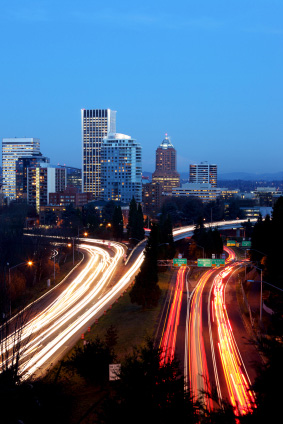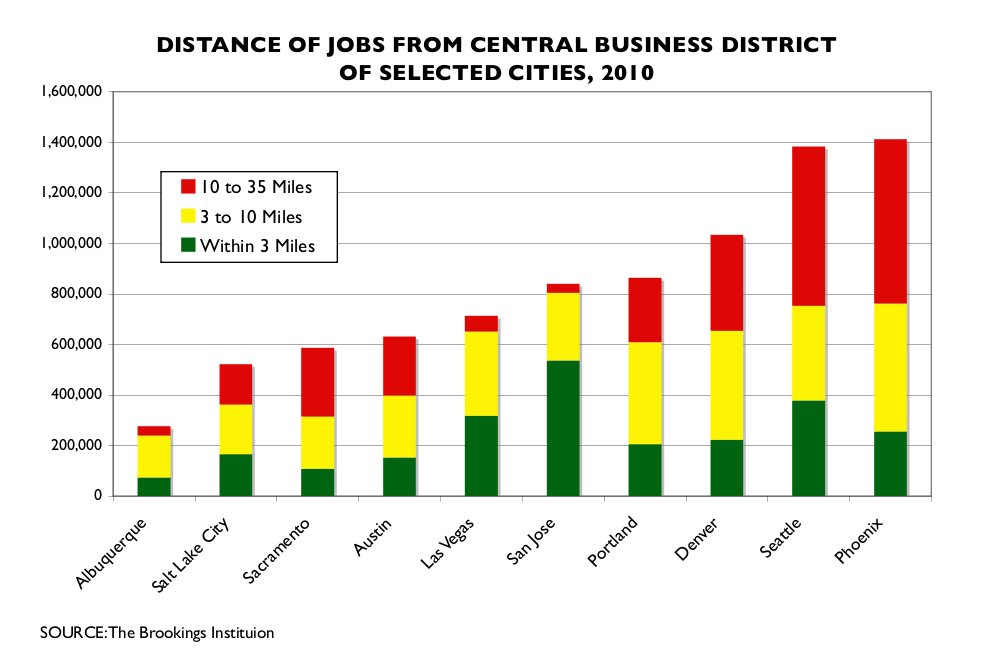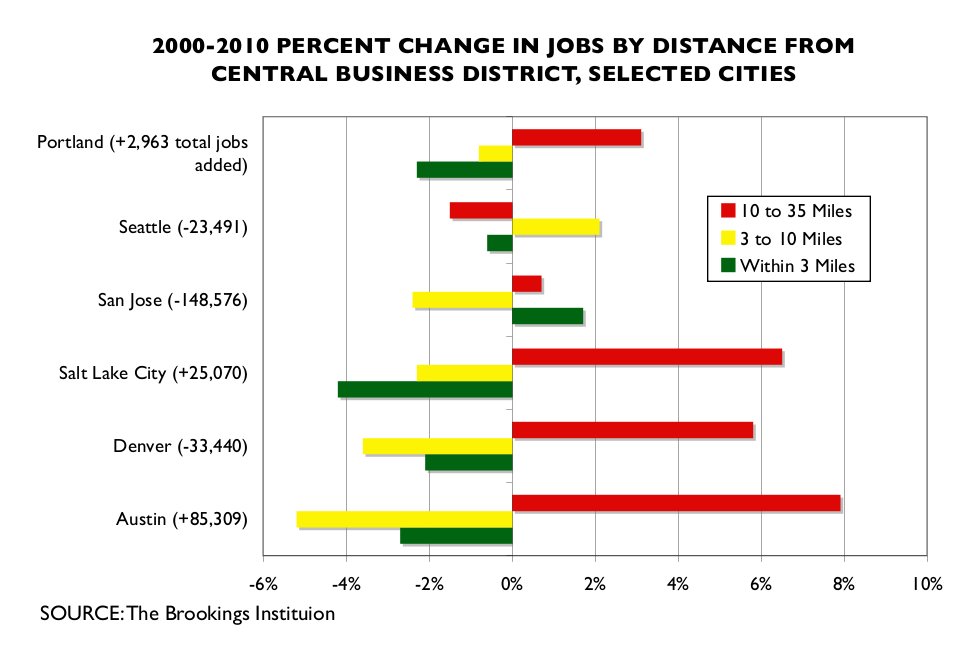BY BRANDON SAWYER | OB RESEARCH EDITOR
 While residential flight to the suburbs ebbed in the last decade or two amid urban gentrification, most jobs are still migrating outward according to a new Brookings report.
While residential flight to the suburbs ebbed in the last decade or two amid urban gentrification, most jobs are still migrating outward according to a new Brookings report.
BY BRANDON SAWYER | OB RESEARCH EDITOR
 While residential flight to the suburbs ebbed in the last decade or two amid urban gentrification, most jobs are still migrating outward. Today the Brookings Institution released a report, Job Sprawl Stalls: The Great Recession and Metropolitan Employment Location, showing jobs continued to radiate away from urban cores since the year 2000, despite the recession’s harsh effects on sprawl-prone industries like construction, retail and manufacturing.
While residential flight to the suburbs ebbed in the last decade or two amid urban gentrification, most jobs are still migrating outward. Today the Brookings Institution released a report, Job Sprawl Stalls: The Great Recession and Metropolitan Employment Location, showing jobs continued to radiate away from urban cores since the year 2000, despite the recession’s harsh effects on sprawl-prone industries like construction, retail and manufacturing.
In an accompanying release, report author and Brookings fellow Elizabeth Kneebone says, “Building a healthy and sustainable regional economy is not just about growing jobs, but also about where those jobs locate. Low-density, sprawling development can lead to increased energy consumption, strains on infrastructure, longer commute times, and greater challenges connecting workers to employment.”
In Portland’s metro area, a measly 2,963 total jobs were added (+0.3%) during the entire decade, yet the area 10 to 35 miles away from its central business district (CBD) gained 27,556 jobs (+3.1%), largely because 5,119 jobs were lost (-0.8%) in the area 3 to 10 miles from the CBD. The three-mile city core lost 19,474 jobs (-2.3%).
Presumably, factors that contributed to this flow include employers moving workforces to the outer reaches and more new businesses starting up there, as well as layoffs and closures close to the CBD. So as ever more residents living downtown or in inner Northeast Portland find themselves commuting out to suburban campuses of like Nike and HP, they are retracing in reverse their forbears path who once commuted to jobs in the city from ranch homes in Beaverton or Wilsonville.
Portland does compare somewhat favorably to the nation in terms of job sprawl. Just 29.5% of its 2010 jobs were 10-35 miles from the CBD versus 43.1% for the 100 largest U.S. metros. The bulk of Portland’s jobs, 46.8%, were 3-10 miles out, versus 34.1% nationally; 23.8% of Portland jobs and 22.9% of 100-metro average jobs were in the inner three miles. Western neighbors San Jose, Las Vegas and Salt Lake City were among the top five most job-centralized metro areas.
In the current decade, efforts to encourage bringing jobs back to its core could go a long way toward achieving Portland’s goals of greater sustainability, infrastructure efficiency and economic vitality.


Research editor Brandon Sawyer digs heaps of data about privately-held and public companies, economics and industries.




